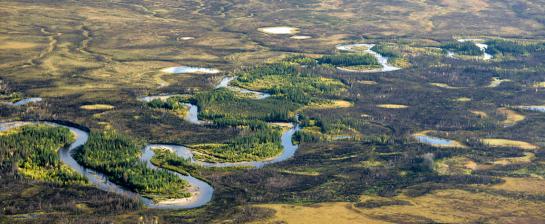When managed sustainably, natural and working lands—including farms, forests, and wetlands—can store carbon, enhance community and ecosystem resilience, and provide many other social, economic, and environmental benefits. Natural and working land management including reforestation, floodplain restoration, and maintenance of riparian buffers in agricultural lands are examples of nature-based solutions that provide value for both natural ecosystems and people. Decision-makers are increasingly interested in understanding, quantifying, and supporting the benefits of natural and working lands at local to national scales.
The Nicholas Institute’s Nature Activation Hub is working with federal agencies, state government, non-governmental organizations, and researchers to provide information about the benefits of natural and working land and opportunities to sustain and enhance those benefits through management and policy. Based on our experience working with North Carolina on natural and working lands planning, the Nicholas Institute recently released a guide to developing state-level natural and working lands action plans.















